
Monocot vs Dicot Flower Definition, Structure, 6 Differences, Examples
Printable Flower Diagrams. Using printable diagrams is a great way to teach and become familiar with all the parts of a flower. To download either the labeled diagram above or unlabeled printable diagram below, click on either the diagram itself or the caption. It will open using Adobe Reader. From here you will be able to either save the.
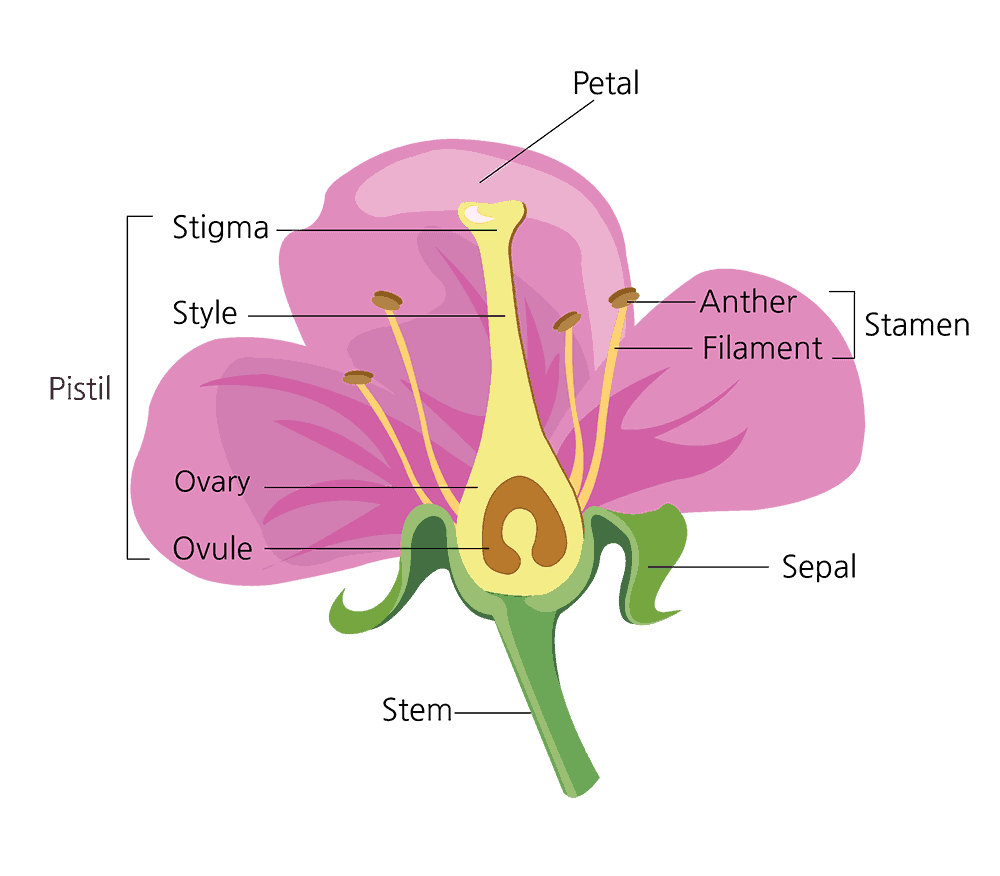
Parts of a Flower and Their Functions (With Diagram) (2023)
A typical diagram of a flower is divided into four main parts: 1) sepals, 2) petals, 3) stamen and, 4) carpel, each of them performing distinct functions. When a flower has all the four floral parts, it is called a complete flower. A flower missing any one of them is called an incomplete flower. Parts of a Flower Diagram. 1. Sepals.
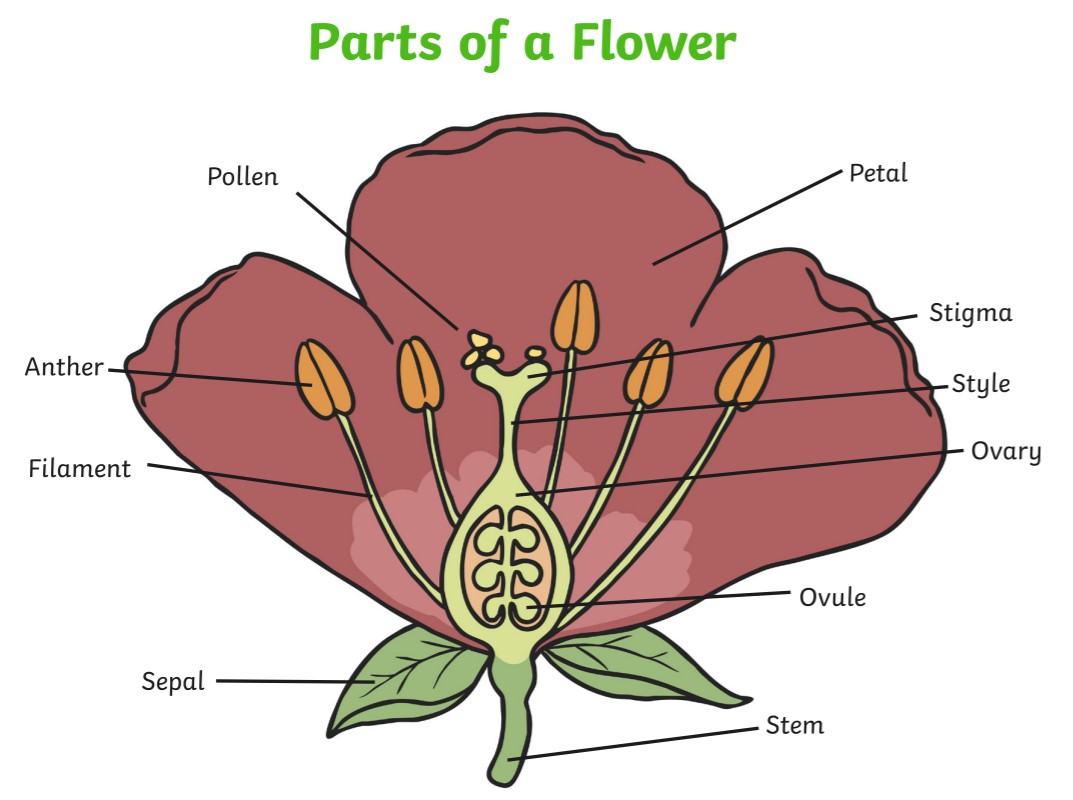
What is a Flower? Answered Twinkl Teaching Wiki Twinkl
When looking at a diagram of a flower, the ovary is the enlarged part located at the base of the pistil. The function of the ovary is to protect its ovules that fertilize pollen that reaches down the pollen tube. One of the reasons why flowers are necessary for fruit-bearing plants is for fruit to form properly. Once fertilized, the ovary.
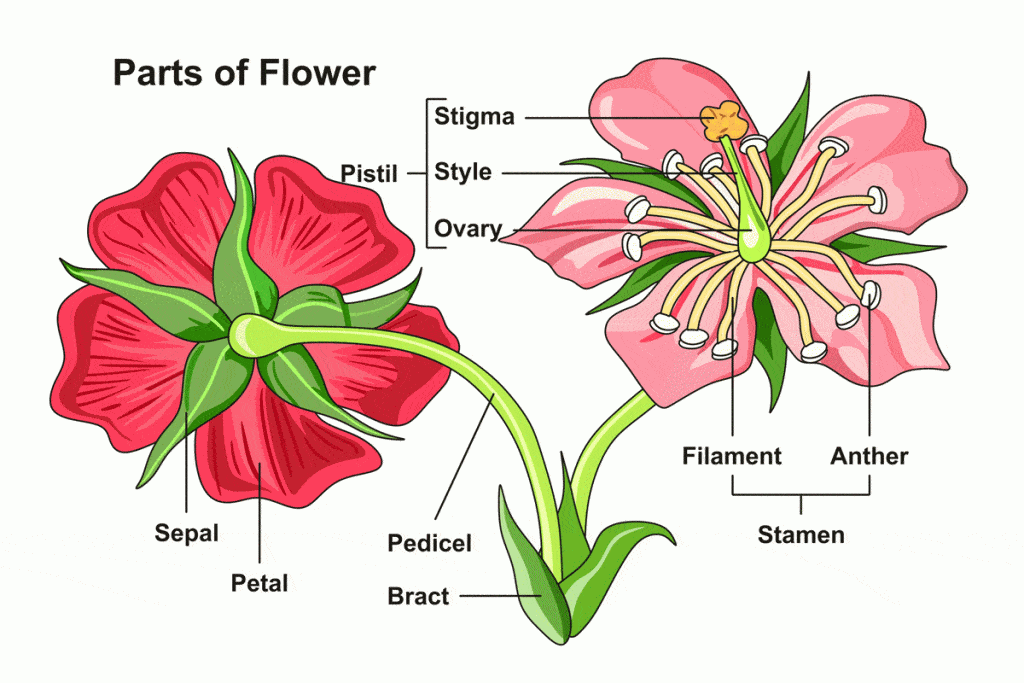
What Are The Parts Of A Rose Plant?
A typical flower has four main parts or whorls referred to as the calyx, corolla, androecium, and gynoecium. The outermost whorl of the flower has green, leafy structures known as sepals. The sepals, collectively called the calyx, help to protect the unopened bud. The second whorl is comprised of petals, usually, brightly colored and are.
Flower structure diagram / RHS Campaign for School Gardening
In a flower diagram, stamen are located on both sides of the pistil. The stamen consists of two parts: Anther: The anther is the head of the stamen. It produces pollen. Filament: The filament is the stalk attached to the flower that holds the anther. The stamen's function is to produce male reproductive cells.

Male And Female Flower Parts About Flowers Kids Growing Strong
Stamen - The male part of the flower that serves to produce pollen; it is composed of the pollen-bearing anther and the stalk-like filament. Pistil - The female part of the flower that typically consists of the stigma at the top which receives the pollen, the narrow style, and the ovary which contains ovules that will later develop into seeds.

Flower Structure Biology for Majors II
GO. Flowers are the reproductive organs of a plant and contain male and female parts. Sepals, petals, stamens and carpels form the four main parts of a flower. The stamens form the androecium, the male reproductive part, and the carpels form the gynoecium, the female reproductive part.

The Flower Flower Bouquet, Parts, Functions, Classification of Flowers
Prep: Before you present this lesson, become familiar with the anatomy of a flower by researching and viewing diagrams or images online or at the library. Teachers TalkingScience recommends that you hand out to your students printed copies of a diagram of the parts of a flower's anatomy that are explored in this activity. Or you can draw a.

Education The Sructure and the Function of Flower
Vegetative Parts of a Flower (Perianth) Petals (Corolla): Petals are usually the most noticeable part of a flower and serve a vital function in attracting pollinators. The vibrant colors and enticing scents of petals attract pollinators such as bees, butterflies, and birds. Sepals (Calyx): These are small, modified leaves that enclose and.
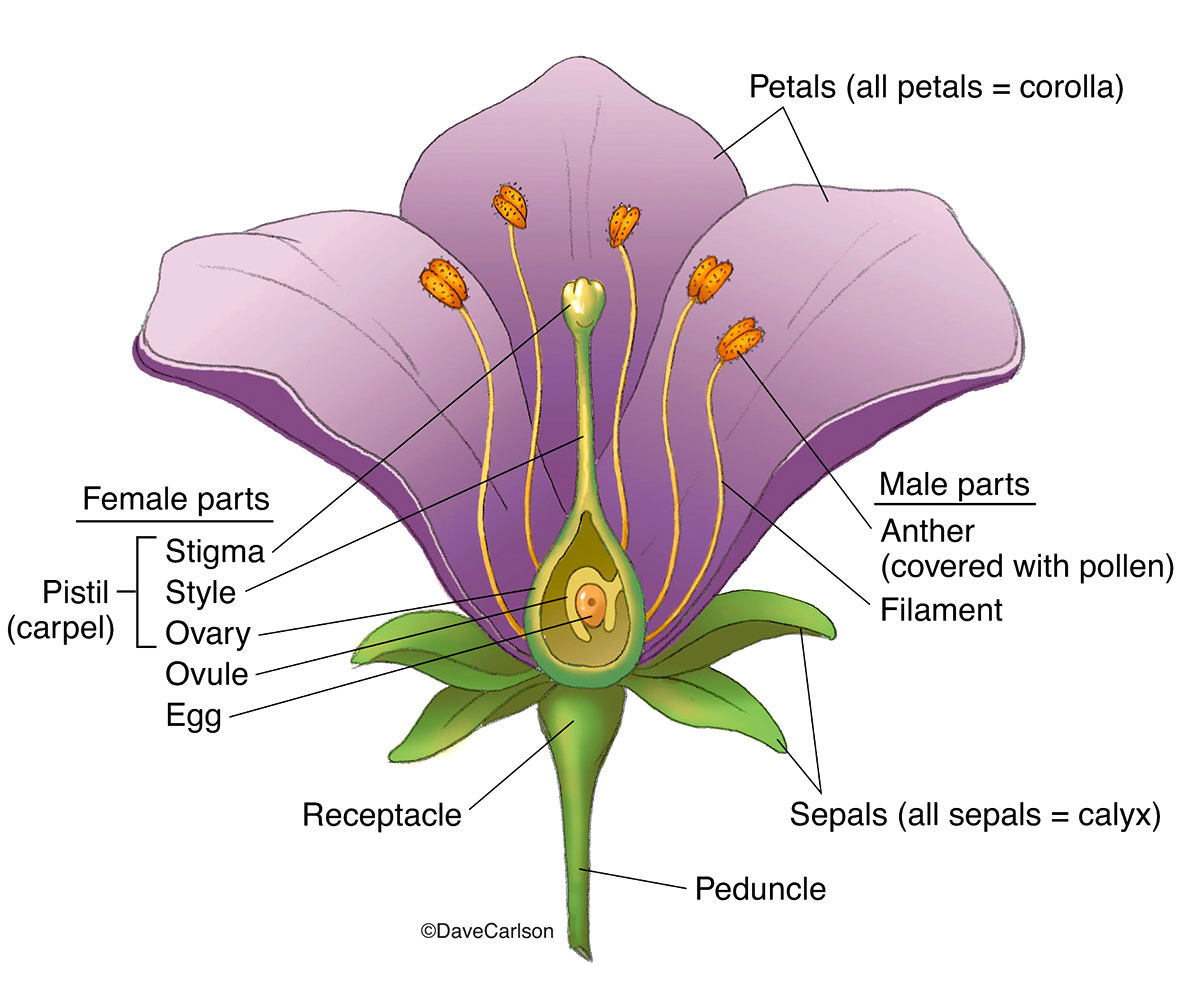
Male And Female Parts Of A Flower And Their Functions All Categories
Some flowers have all four of these basic structures. We call these complete flowers.Examples of plants with complete flowers include lilies and roses. Flowers missing one or more of the flower parts are called incomplete.Some, like dogwood, have both pistils and stamens but are missing sepals or petals; these are called perfect flowers.Other plant species separate the male and female.
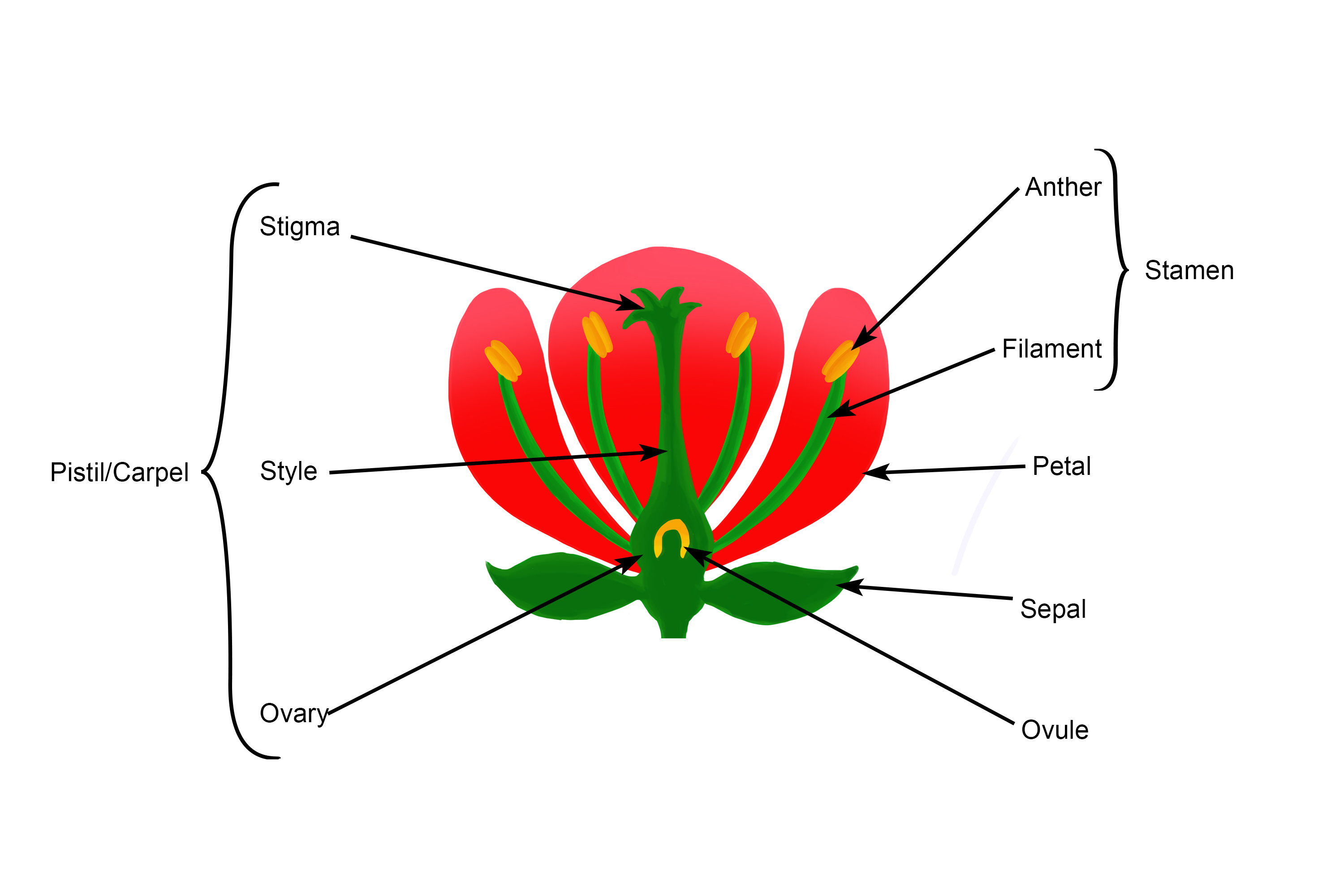
Hibiscus Flower Male And Female Parts Unit 6 Plant Form and Function
Parts of a Flower. Most flowers have four main parts: sepals, petals, stamens, and carpels. The stamens are the male part whereas the carpels are the female part of the flower. Most flowers are hermaphrodite where they contain both male and female parts. Others may contain one of the two parts and may be male or female.
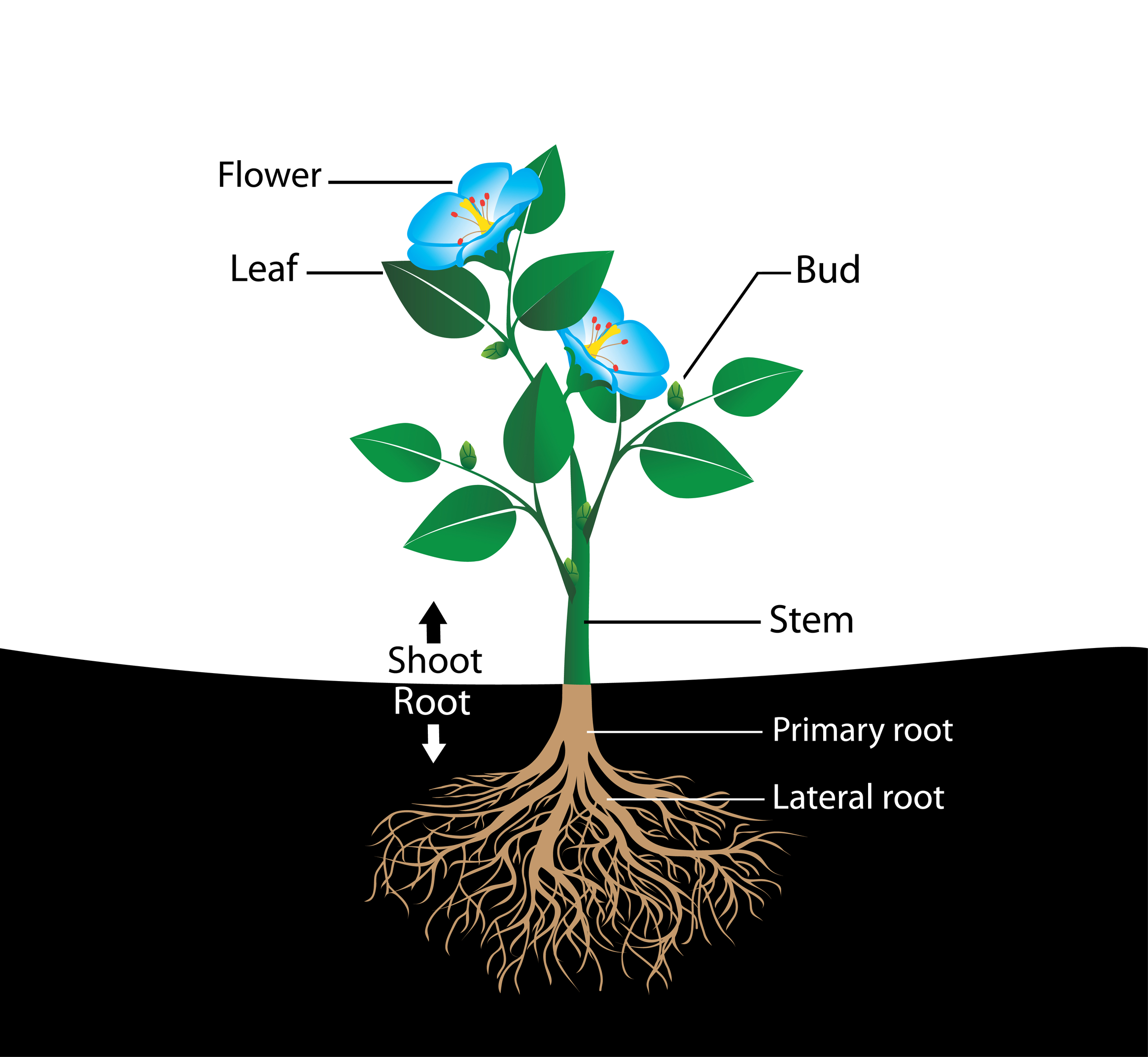
Parts of Flowering Plants
The four main parts of a flower are the petals, sepals, stamen, and carpel (sometimes known as a pistil). If a flower has all four of these key parts, it is considered to be a complete flower. If any one of these elements is missing, it is an incomplete flower. Complete. Rose.
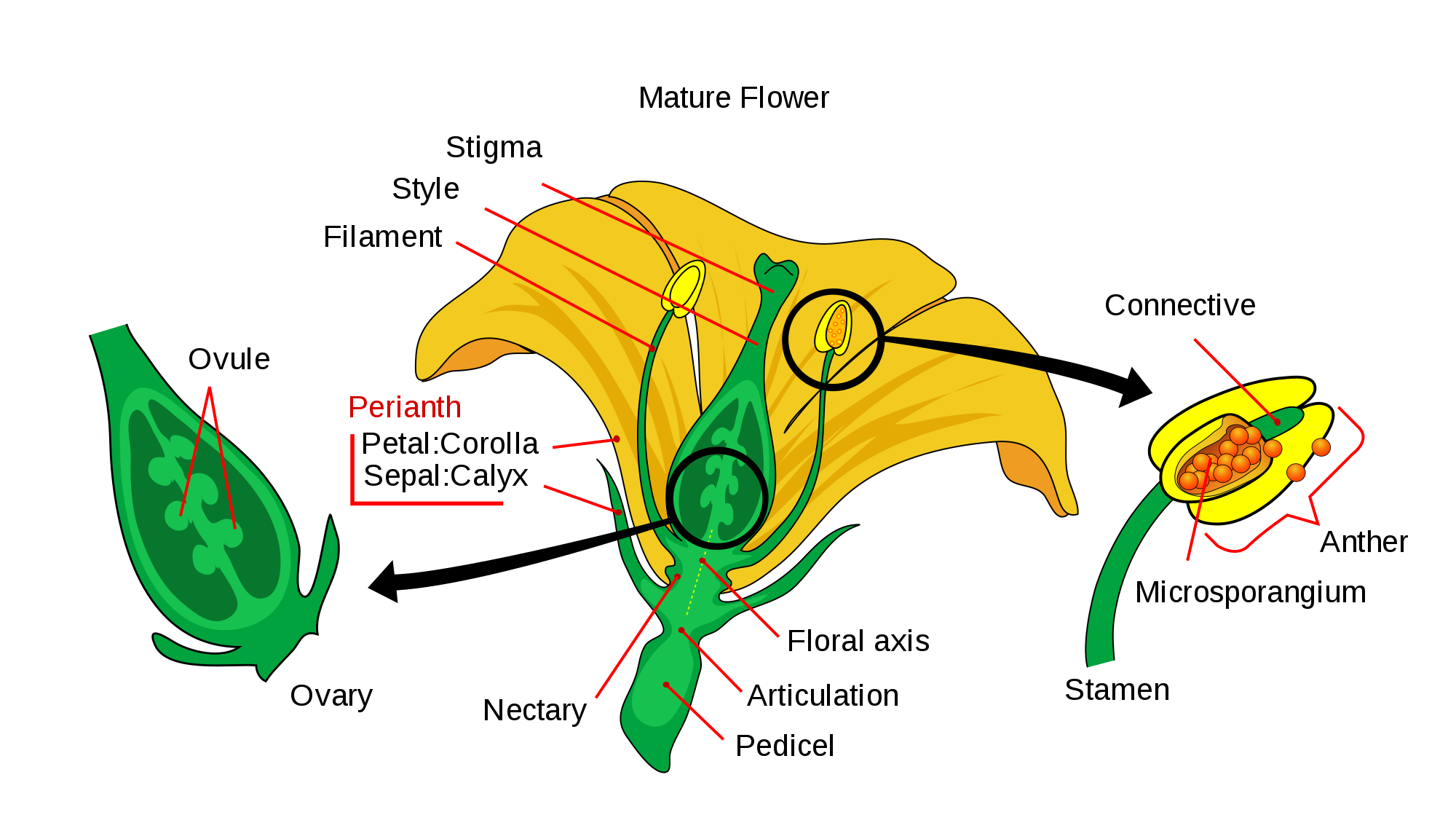
A typical flower and its parts Online Science Notes
Figure \(\PageIndex{1}\): This diagram shows a long section through a flower. Starting from the bottom, there is a stem called the peduncle. The peduncle terminates in a region called the receptacle, where all of the parts of the flower are attached. Sepals are found on the outside of the flower, two are visible here, with petals located just.
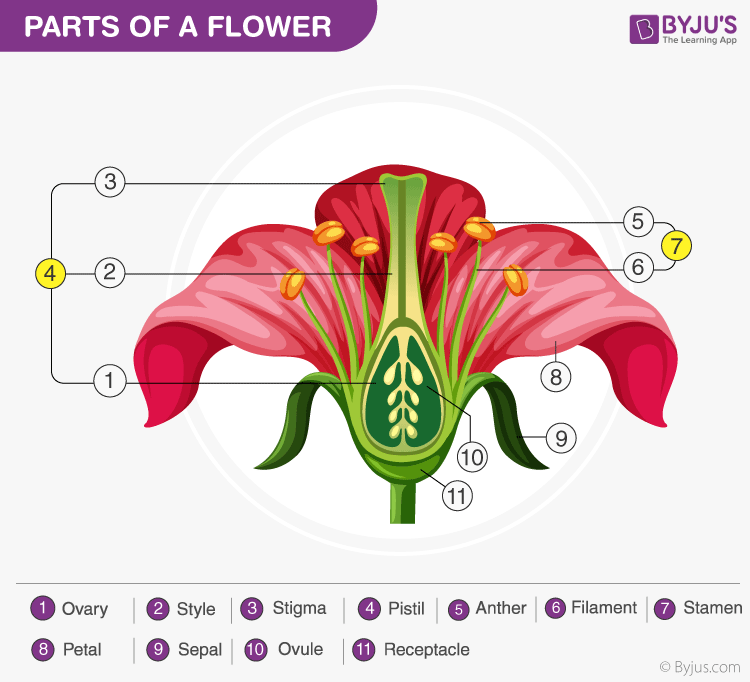
Draw The Diagram Of A Flower To Show It Male And Female Reproductive
The modified leaves in flowers are called sepals, petals, stamens, and carpels ( Figure 2.6.3.1.1 2.6.3.1. 1). These components are arranged in whorls and attach to an area called the receptacle, which is at the end of the stem that leads to the flower. This stem is called the peduncle.
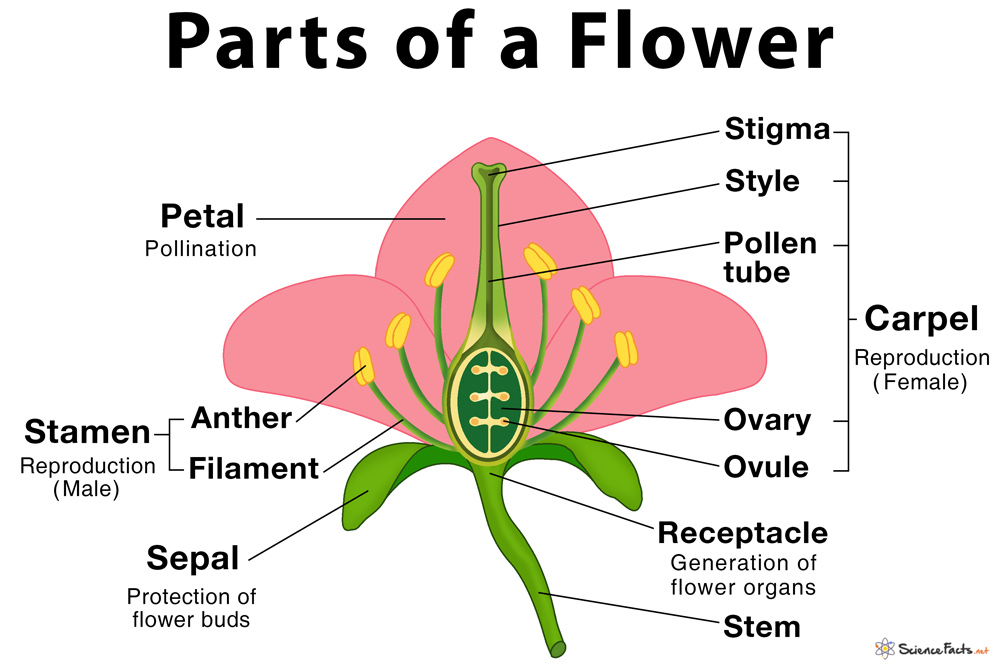
Parts of a Flower, Their Structure and Functions With Diagram
Flower Structure in a Labelled Diagram. Flower structures are complex, so just knowing the names of each one might not solve all your questions. To get a better idea of what each part of a flower looks like, have a look at the labelled diagram below. Fig. 1 - Diagram of a complete flower showing the four main floral parts and their components.

Parts of a Flower — Mathwizurd
There are commonly four distinct whorls of flower parts: (1) an outer calyx consisting of sepals; within it lies (2) the corolla, consisting of petals; (3) the androecium, or group of stamens; and in the centre is (4) the gynoecium, consisting of the pistils. pistil and stamens. A lily flower with a central pistil surrounded by stamens.